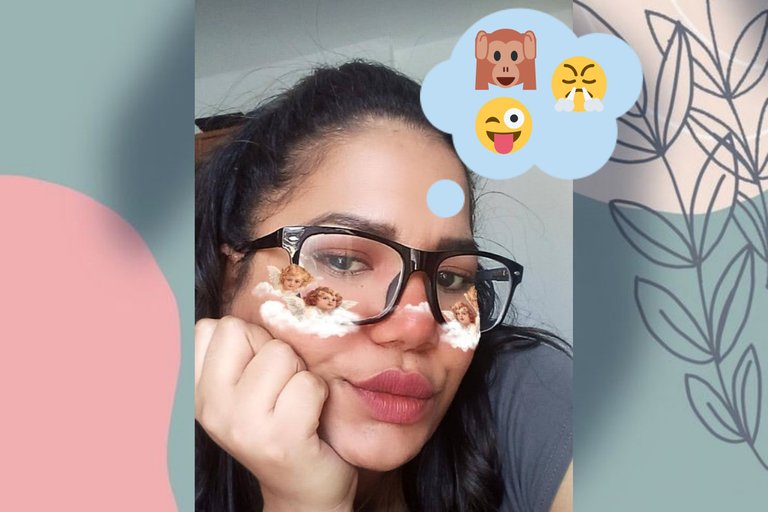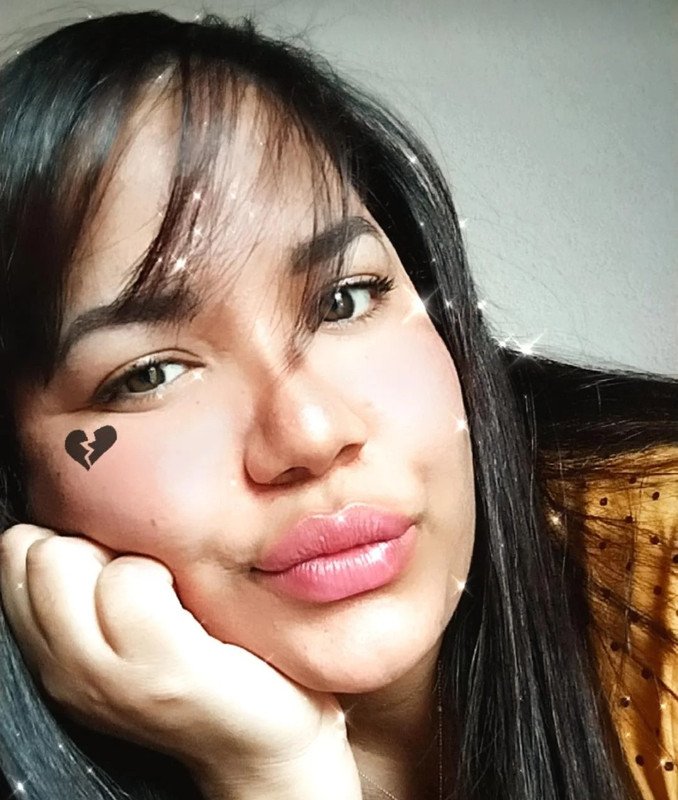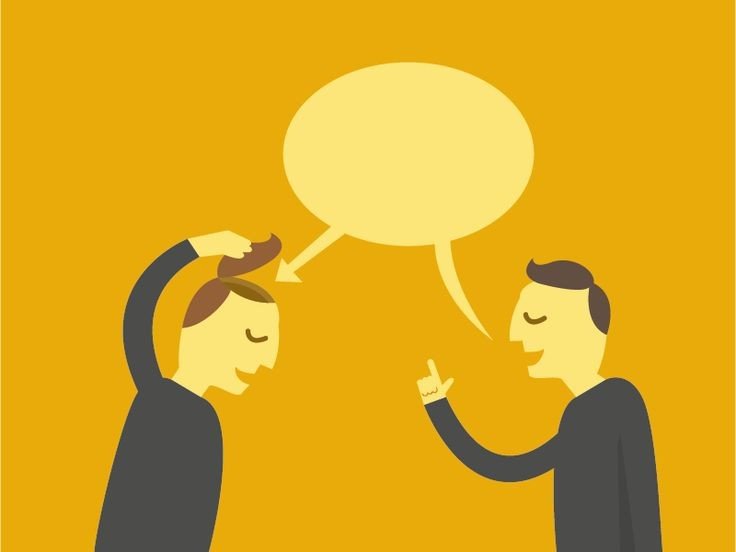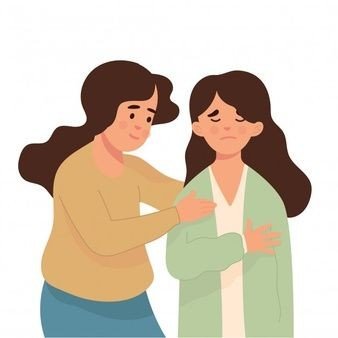Bienvenidos a mi blog 🧘🏽♀️✨
Welcome to my blog 🧘🏽♀️✨
Hola bonita comunidad de
@Emotions&Feelings. Es mi primera vez haciendo aparición por acá, para presentarles mi perspectiva sobre un tema que nos preocupa a muchas personas con el síndrome de "salvadores" cuando queremos resolver los problemas de los demás.
Hello beautiful community of #Emotions&Feelings. It's my first time making an appearance here, to present you my perspective on a topic that worries many of us with the "savior" syndrome when we want to solve other people's problems.
Cuando alguien a quien quieres demasiado está atravesando alguna lucha o duro proceso es inevitable no sentirlo propio. Pero por qué se activa ese sentimiento de querer resolverle los problemas a los demás? Creo que nos sentimos como superhéroes, con el imperioso rol de salvadores y con el deber de ayudar a los demás. Nos sentimos útiles y valiosos cuando intervenimos en la búsqueda de soluciones en los problemas de alguien más porque la carga se comparte. Pero esto no significa que se encuentre la solución deseada para darle fin al problema.
When someone you love very much is going through a struggle or a hard process, it is inevitable not to feel it as your own. But why is it that this feeling of wanting to solve the problems of others is activated? I think we feel like superheroes, with the compelling role of saviors and the duty to help others. We feel useful and valuable when we intervene in the search for solutions to someone else's problems because the burden is shared. But this does not mean that the desired solution is found to end the problem.
 Foto de mi propiedad editada utilizando la app Inshot// Photo of my property edited using the Inshot app
Foto de mi propiedad editada utilizando la app Inshot// Photo of my property edited using the Inshot app
Grandes o pequeños, como seres humanos muchos tenemos la necesidad de compartir nuestros pesares. Sin embargo, hay otros pocos que no. Están aquellos que se tragan sus problemas y no lo exteriorizan con la certeza de que en algún momento acabarán y creo que también se comete otro error, porque quizás se ahogan en un vaso de agua porque tienen la tendencia de agrandar el problema.
Big or small, as human beings many of us have the need to share our sorrows. However, there are a few others who do not. There are those who swallow their problems and do not externalize them with the certainty that at some point they will end and I think that is also another mistake, because perhaps they drown in a glass of water because they have the tendency to magnify the problem.
Pienso que lo más recomendable es escuchar a la persona que tiene el problema, pero no hacerlo propio. Ya tenemos suficientes cargas como para hacerla más pesadas. Con esto no quiero decir que debamos ser egoístas y apáticos al problema ajeno. Más bien, intento hacer énfasis en que todos nacimos con las habilidades y recursos para encontrar las soluciones a nuestros problemas, solo que para unos es más fácil encontrarlas que otros.
I think the best thing to do is to listen to the person who has the problem, but not to make it our own. We already have enough burdens without making it heavier. By this I do not mean that we should be selfish and apathetic to other people's problems. Rather, I am trying to emphasize that we are all born with the skills and resources to find solutions to our problems, it is just that for some it is easier to find them than others.
 Foto de mi propiedad - Editada en Instagram // Photo of my property - Edited on Instagram
Foto de mi propiedad - Editada en Instagram // Photo of my property - Edited on Instagram
En un curso de Administración en el que participé el año pasado, tuve una muy buena profesora de Comunicación que nos hablaba acerca de la "escucha activa". Nos indicó que al practicarla debíamos escuchar con atención y empatizar con la persona afectada pero sin hacer propio el problema. Esto me sirvió de referencia para el día a día en mi vida. Por qué? Porque a veces creemos que solucionandole los problemas a los demás seremos personas más queridas y aceptadas. ¡Que gran error!
In a Management course in which I participated last year, I had a very good Communication teacher who talked to us about "active listening". She told us that when practicing it, we should listen carefully and empathize with the person concerned, but without making the problem our own. This served as a reference for my day-to-day life. Why? Because sometimes we believe that by solving other people's problems we will be more loved and accepted. What a big mistake!
 Imagen de "escucha activa" tomado de la web de www.psicoglobal.com // Image of "active listening" taken from the www.psicoglobal.com website
Imagen de "escucha activa" tomado de la web de www.psicoglobal.com // Image of "active listening" taken from the www.psicoglobal.com website
Expondré un ejemplo personal muy claro: Cuando me vine a vivir a España y empecé a trabajar, económicamente pude ayudar a varias personas además de mi familia. Yo me sentía feliz de poder ayudarles pero se volvió una constante, ya que por la situación - país en Venezuela 🇻🇪 el tema económico era muy delicado. Claro estaba que mi prioridad era mi familia, pero mi corazón de pollo 💗 flaqueó y pues me suele resultar muy fácil ponerme en los zapatos de los demás. ¡Otro error! Porque gracias a esto, muchas personas abusaban de mi buen proceder hasta que me quedé sin trabajo y como dice el dicho: "les corté el agua y la luz" a todas esas personas que no eran mi familia. Creí que hacía un bien y pues no. Los ayudaba económicamente, les ayudé también a buscar otro tipo de soluciones y que va, más fácil era recibir ayuda monetaria que intentar erradicar la raíz de los problemas. Los problemas son responsabilidad de quién los tiene, y está bien exteriorizarlos y solicitar ayuda pero quién ayuda debe tener claro que las necesidades ajenas no pueden jamás anteponerse a las suyas.
I will expose a very clear personal example: When I came to live in Spain and started working, economically I was able to help several people in addition to my family. I was happy to be able to help them but it became a constant, because due to the situation - country in Venezuela 🇻🇪 the economic issue was very delicate. Of course, my priority was my family, but my chicken heart 💗 faltered and I usually find it very easy to put myself in other people's shoes. Another mistake! Because thanks to this, many people abused my good behavior until I was out of work and as the saying goes: "I cut off the water and electricity" to all those people who were not my family. I thought I was doing good, but I wasn't. I was helping them financially. I helped them economically, I also helped them to look for other types of solutions and it was easier to receive monetary help than to try to eradicate the root of the problems. Problems are the responsibility of the one who has them, and it is fine to externalize them and ask for help, but the one who helps must be clear that the needs of others can never come before his own.
Los problemas deben quedarse donde les correspondan: los del trabajo en el ámbito laboral, los familiares en casa, los amorosos dentro de la pareja y así. Debemos marcar límites o una sana distancia sin necesidad de sentirnos culpables. Porque si la vida fuese fácil, entonces todos naceriamos con un manual debajo del brazo, verdad?
Problems should stay where they belong: work problems at work, family problems at home, love problems within the couple and so on. We must set limits or a healthy distance without feeling guilty. Because if life were easy, then we would all be born with a manual under our arms, right?
Quieres sentirte útil ante un problema ajeno? Pues actúa de forma inteligente y consciente. Sé un apoyo constructivo, consuelo emocional y motivador ante las dificultades de otro.
Do you want to feel useful in the face of someone else's problem? Then act intelligently and consciously. Be a constructive support, emotional comfort and motivator in the face of someone else's difficulties.
 Imagen referencial sobre "apoyar a un amigo" tomada de la web de freepik.es // Reference image about "support a friend" taken from the website freepik.es
Imagen referencial sobre "apoyar a un amigo" tomada de la web de freepik.es // Reference image about "support a friend" taken from the website freepik.es
Si te sientes identificado o haz encontrado calma con este post, te mando un abrazo en la distancia y te digo que "ningún problema es eterno". Todos tenemos problemas pero nos diferenciamos unos a otros, en la manera en como los afrontamos. Gracias por leerme 💗🧘🏽♀️✨
If you feel identified or have found calm with this post, I send you a hug in the distance and tell you that "no problem is eternal". We all have problems but we differ from each other, in the way we face them. Thanks for reading me 💗🧘🏽♀️✨
Para obtener más visibilidad de esta publicación, su apoyo a través de upvote y reblog es muy apreciado. Además, siéntase libre de compartir en sus cuentas de redes sociales. Gracias por tu tiempo ❤️🌻✨


Este texto es redactado por @royvego55 y traducido utilizando el traductor de DeepL / This text is written by @royvego55 and translated using the DeepL translator.
||| Todos los derechos reservados / All rights reserved / @royvego55 |||
Todas las fotografías fueron tomadas y editadas desde mi XIAOMI REDMI 9T / All the photographs were taken and edited from my XIAOMI REDMI 9T 





The people doing V2K with remote neural monitoring want me to believe this lady @battleaxe is an operator. She is involved deeply with her group and @fyrstikken . Her discord is Battleaxe#1003. I cant prove she is the one directly doing the V2K and RNM. Doing it requires more than one person at the least. It cant be done alone. She cant prove she is not one of the ones doing it. I was drugged in my home covertly, it ended badly. They have tried to kill me and are still trying to kill me. I bet nobody does anything at all. Ask @battleaxe to prove it. I bet she wont. They want me to believe the V2K and RNM in me is being broadcast from her location. And what the fuck is "HOMELAND SECURITY" doing about this shit? I think stumbling over their own dicks maybe? Just like they did and are doing with the Havana Syndrome https://ecency.com/fyrstikken/@fairandbalanced/i-am-the-only-motherfucker-on-the-internet-pointing-to-a-direct-source-for-voice-to-skull-electronic-terrorism
¡Gracias por la valoración! 🥳✨
Hola cariño @royvego55 🙋🏻♀️
Me sentí identificada con tu post porque durante un tiempo yo fui así. Me estresaba, me dolía la espalda y la cabeza por la preocupación por ayudar a otros. Me entregaba. Al final las cosas no resultaban bien o lo bueno duraba poco.
Comprendí que quiero ser altruista con modestia, con equilibrio. Esa forma de ayudar es más efectiva para otros y para uno mismo.
Gracias por tocar este tema tan importante 💖
Solo te recomendamos algo, en las imágenes que no son propias, es bueno que coloques el enlace directo o dirección con un vínculo de dónde las tomaste. No solamente nombrar la página 😉💗
¡Bienvenida! 🤗
Pues todas esas dolencias eran producto de preocupaciones ajenas + tus cargas. Yo lo experimenté hasta que dije: "Ya, para". Porque de verdad, eh. Al principio me sentía mal porque consideraba que era mala persona pero ya después asumí que no puedo cargar con los problemas del mundo. Aunque aún me cuesta, definitivamente ya estoy más curada del asunto jeje Saludos ❤️🙏✨
Gracias por el apoyo 🙏🥰✨